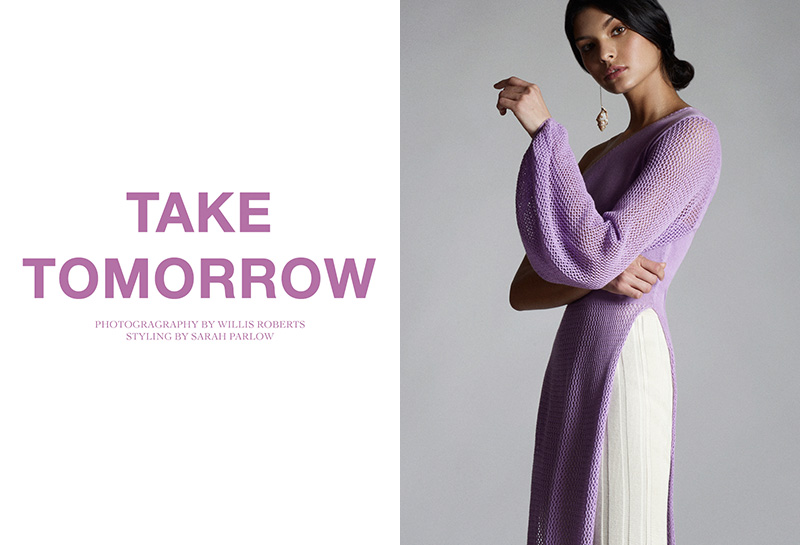
Sustainable fashion takes the spotlight in FGR’s latest exclusive. Captured by Willis Roberts, model Livia Rangel wears eco-friendly designs. Stylist Sarah Parlow selects pieces for the shoot and also writes an article about fashion’s future. Livia models a mix of lightweight knitwear as well as bold prints. For beauty, Stephania Parent works on her understated hair and makeup.
Related: Exclusive | Lera Kvasovka by Willis Roberts in ‘The Look’
FGR Exclusive: Livia Rangel by Willis Roberts in ‘Take Tomorrow’
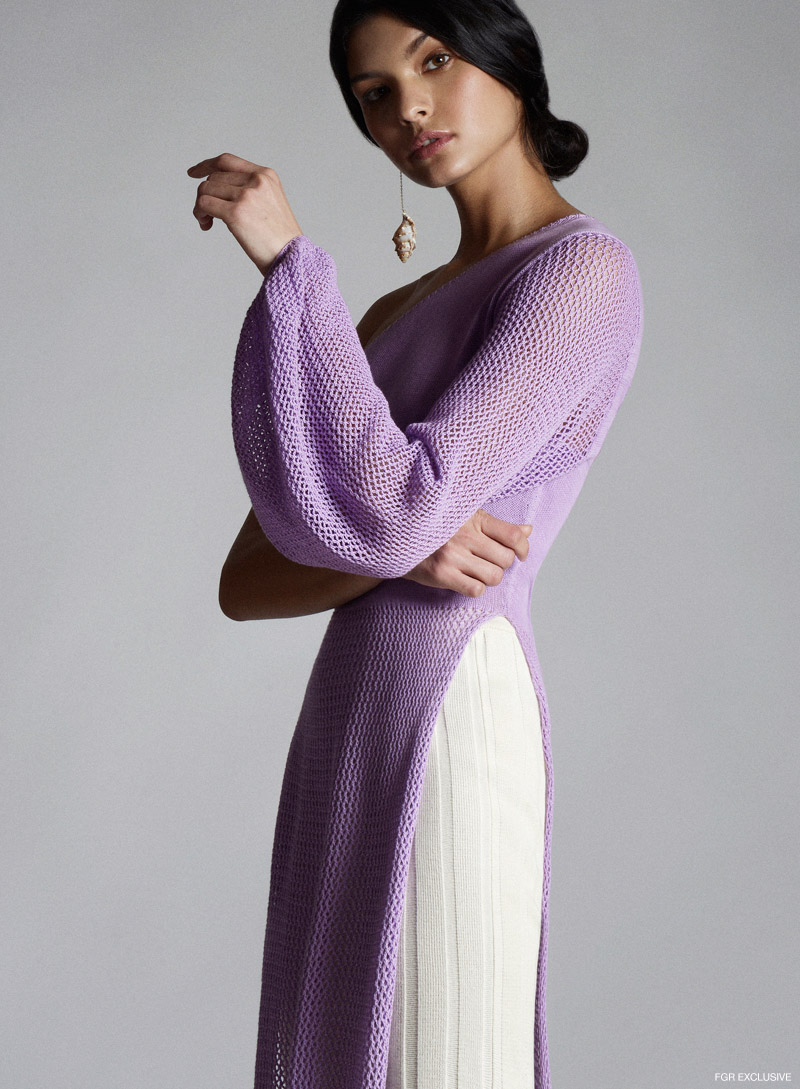
Recalibrating Time: Setting the pace at a human level
ARTICLE BY SARAH PARLOW
The global pandemic is causing major changes in the Fashion Industry. Beyond the closed stores, lost profits, layoffs and bankruptcies, some of the changes appear to be for the better. Historically, major world events like economic and political catastrophes have forced old systems to break down allowing new talent and new forms of growth to thrive.
Recently, Dries van Noten wrote an open letter asking for the Fashion Industry to “simplify and make operations more environmentally and socially sustainable”(1). Joining Dries were designers Altuzarra, Marine Serre, Eckhaus Latta, Paco Rabanne, Caroline Herrara, Nina Ricci, Chloe and major retailers Lane Crawford, Selfridge’s, Nordstrom and Mytheresa. Their idea is to create less product that will balance the flow of deliveries, cut back on waste and travel and make use of digital showrooms in lieu of multiple fashion shows every year.
They would eliminate pre-collections like Cruise, Resort and Pre-Fall in favor of just two collections a year: Spring/Summer which would be in stores February through July and Fall/ Winter which would be in stores August through January. Shows would happen a few weeks before the clothes hit the stores and sales would occur only two times a year: Feb and July which could mean the end of Black Friday, Cyber Monday and Singles Day.
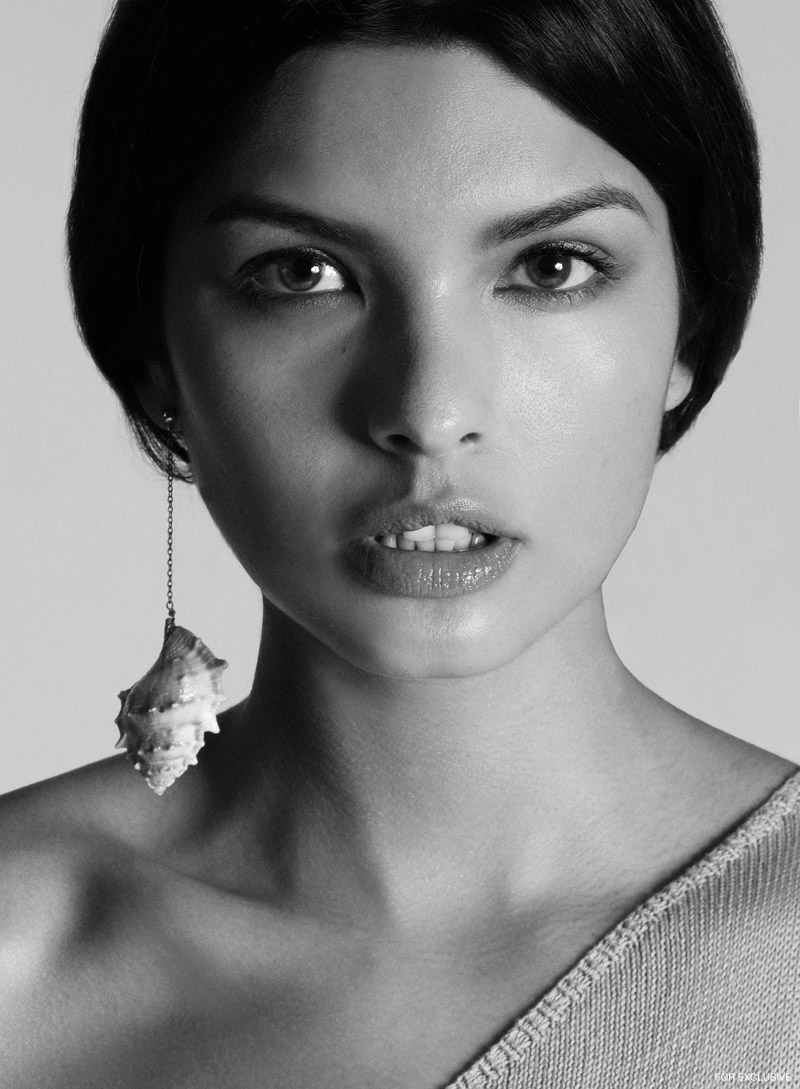
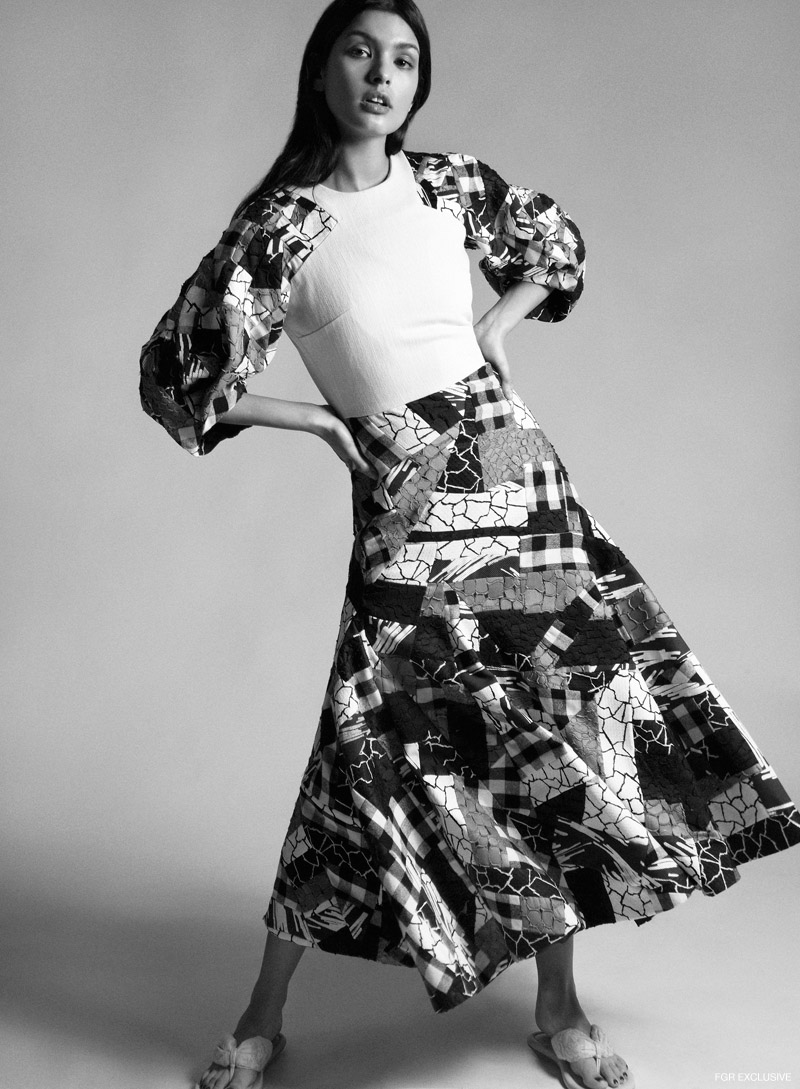
Designers Oscar de la Renta, Proenza Schouler, Rachel Comey, Rosie Assoulin and menswear designer Craig Green want to take the limited sale time a step further by changing the fashion calendar all together to combine men’s and women’s fashion weeks and make shows a more consumer oriented event rather than closed-door and industry oriented.
Gucci is the latest major brand to reject the fashion week calendar, joining Saint Laurent (both owned by Kering) who will be sitting out fashion week in September. Gucci will be cutting down the number of shows it does each year from five to two and will no longer assign seasons which will allow the clothes a longer life span which is possibly prescient in world where global warming seems to blur the lines between what season it is at any given moment.
On May 23rd, Gucci posted a series of creative director Alessandro Michele’s personal diary entries on Instagram titled “Notes from the Silence” where he ruminates about how the Fashion Industry contributes to climate change and feeling personally “constrained by the tyranny of speed”.
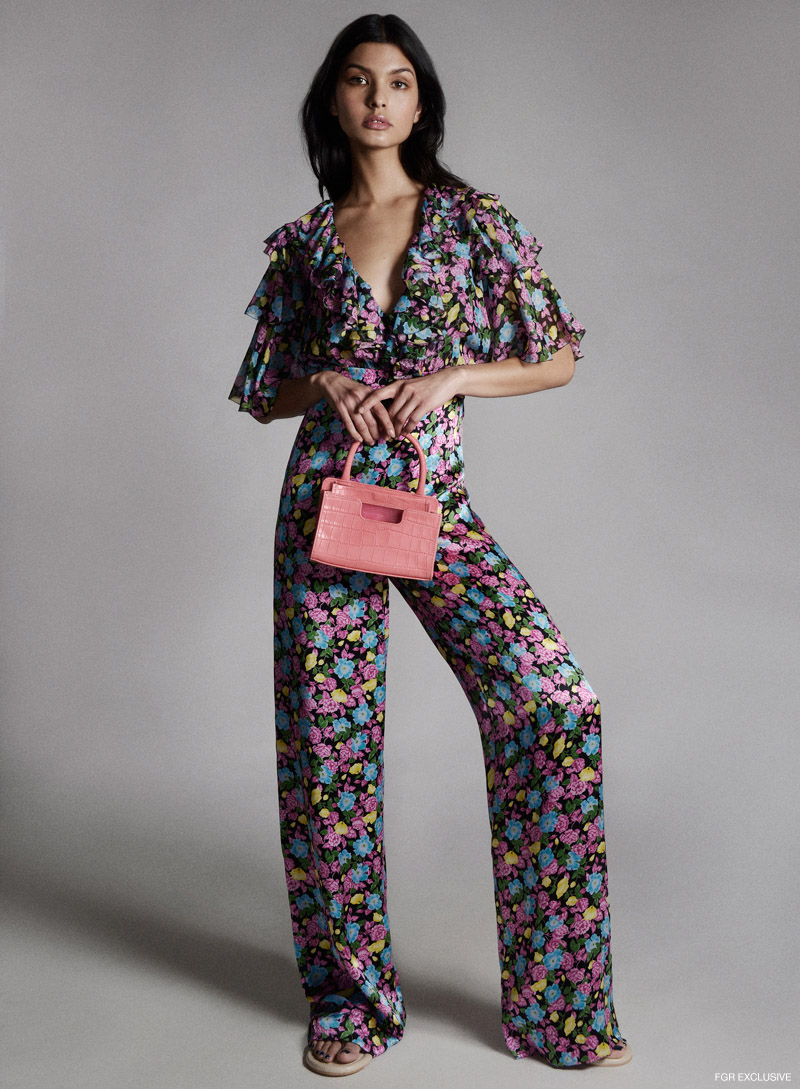
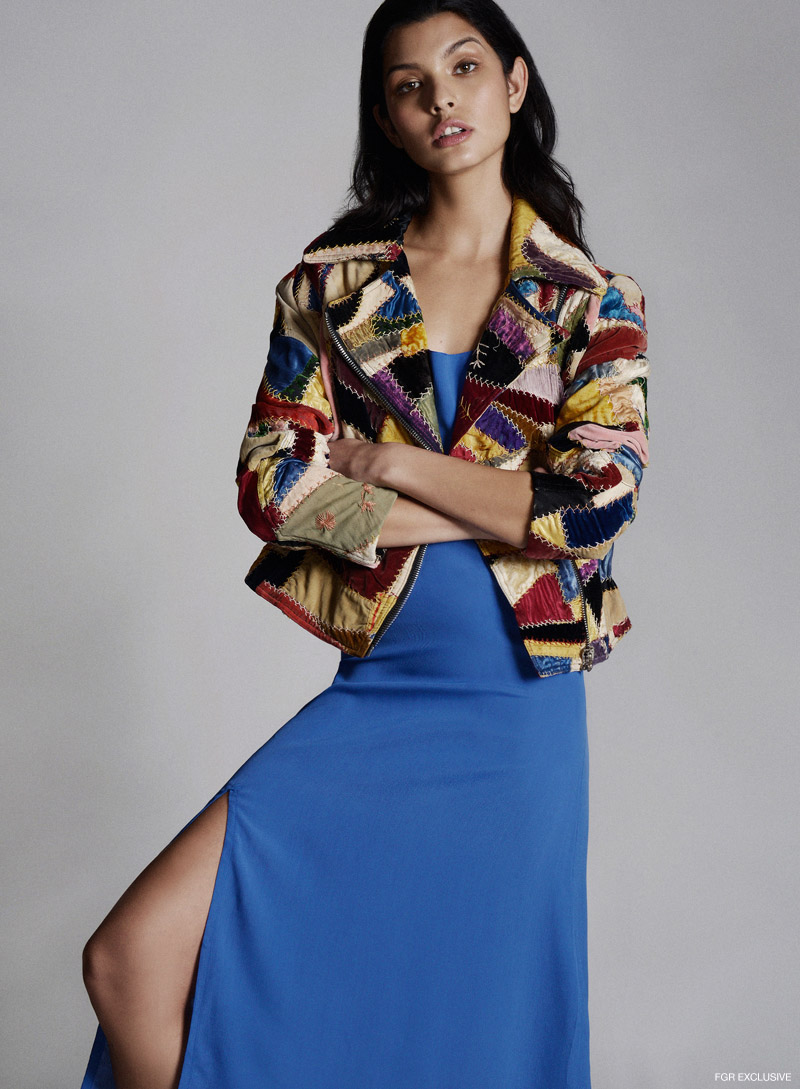
He writes, “Above all, we understood we went way too far. Our reckless actions have burned the house we live in. We conceived of ourselves as separated from nature, we felt cunning and Almighty. We usurped nature, we dominated and wounded it”, and, “so much outrageous greed made us lose the harmony and the care, the connection and the belonging. We ravaged the sanctity of life, neglectful of our being a species.”
He calls for a release from imposed deadlines that inhibit creativity so we can “build new and more powerful narrations” based on the “subtraction of events and that oxygenates through the multiplication of sense”.
These small independent designers are free from the constraints imposed on big brands owned by major conglomerates like Kering and LVMH. There are no elaborate fashion shows or multiple sub-collections. They are focused on small production and manufacture in a slow eco and socially conscious way.
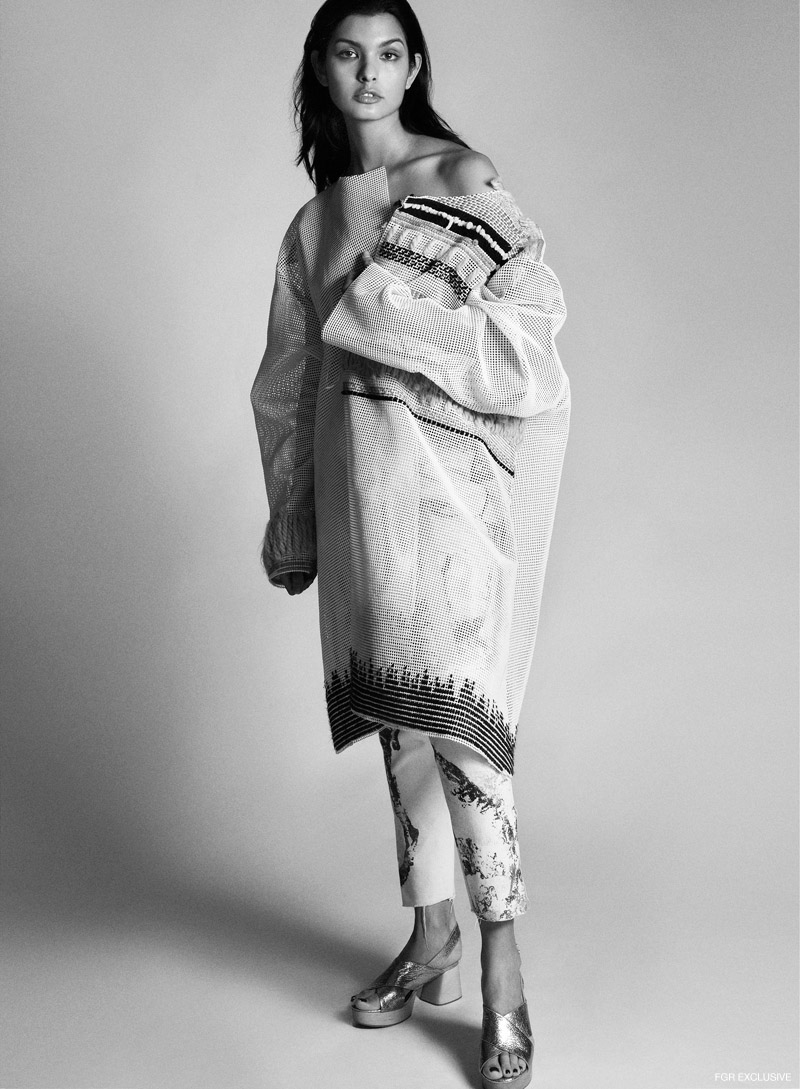
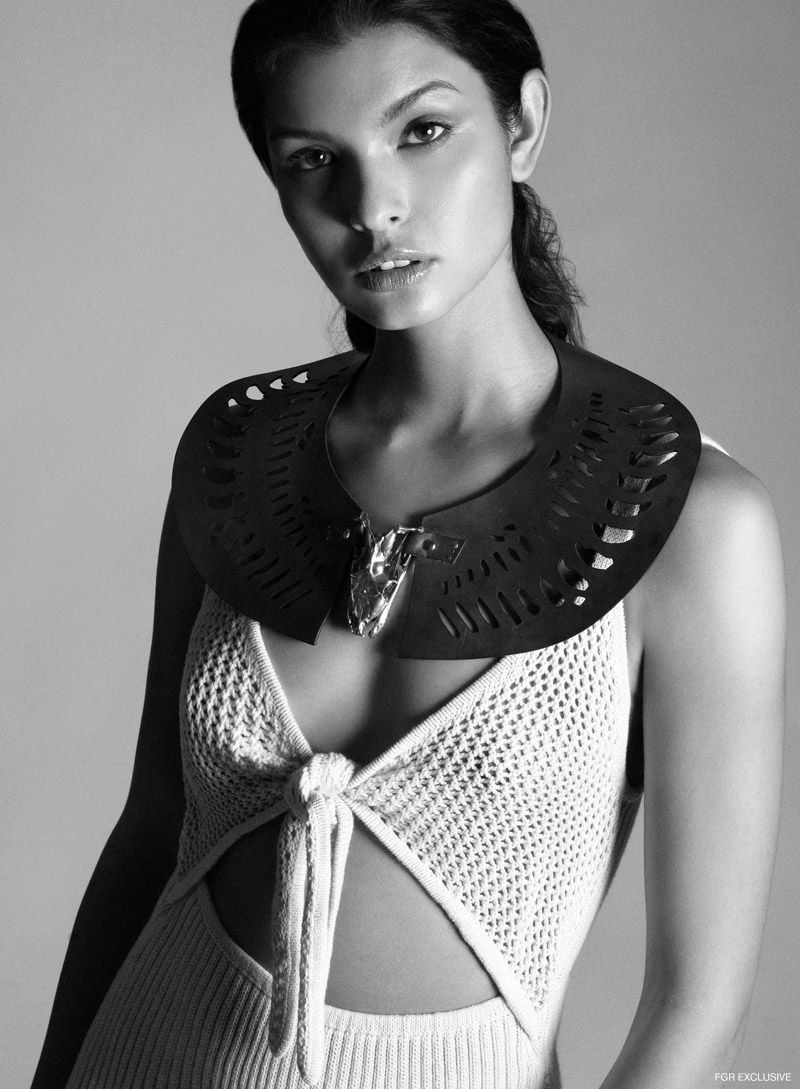
Mimi Prober: New York-based fashion designer Mimi Prober uses recovered fragments of antique materials that date back as far as the 18th to early 20th centuries to create her handcrafted clothing and accessories. Through utilizing recovered materials, natural and locally produced luxury fibers and botanical-based dye methods, Prober’s custom textiles enable a zero-waste, closed-loop system that embodies sustainable luxury.
Eye to Eye: Aimed at the area between fast fashion and unaffordable high priced designer items, Eye to Eye uses high-quality materials in classic designs to create those timeless pieces you can always go back to and feel great in at an affordable price.
Ashley Raynor: An eco-conscious London based brand dedicated to sustainable and ethical fashion for a lower impact on the environment. Through their use of innovative materials they strive to tackle the issue of waste in the fashion industry and lower the environmental impact of their products. All products are designed, sampled and manufactured in house, not out sourced. Some of their products use recycled fabrics or innovative materials such as cork (tree bark) but they mainly use raw, organic fabrics that they dye and print themselves. They use binders instead of printing dyes as the dyes use a vast amount of water in the washout process and steaming process and their binders just need heat applied to them once dried to fix them to the fabric. This method is much more environmentally friendly and just as effective.
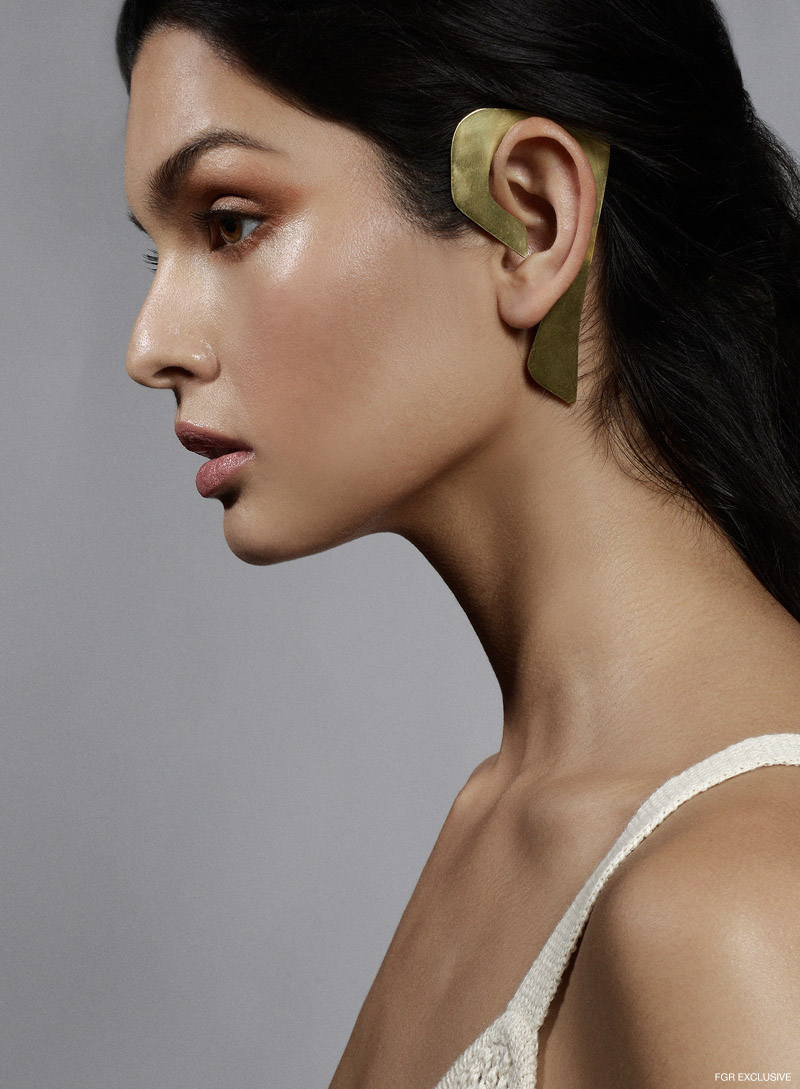
Ariana Bohling: Brooklyn based designer Ariana Bohling makes handmade shoes. Ariana began making shoes in her studio in Brooklyn beginning with delicately braided Italian leather sandals. Since then she and business partner Alyson Kurtz have expanded production to Peru and Asia in order to maintain quality handmade products produced by local artisans in small workshops. Ariana Bohling believes in fair trade practices that provide good working conditions and livable wages in order to sustainability promote the artisans, their industry, and the art of handcrafting shoes. To ensure quality standards and working conditions Ariana and Alyson spend time in Peru and Asia to oversee the production and development process of the collection each season. All shoes are handcrafted from 100% leather and all components are sourced locally.
B Dodi: B DODI is a UK based leather and jewelry designer who specializes in 3D printing, a design method that has virtually no waste.
Kordal Studio: Kordal Studio is a clothing brand that creates quality, responsibly made garments that exemplify the possibilities of sustainable design. All collections are designed and produced in an ethical manner by designing garments that are not trend focused; use natural, organic, and recycled textiles; and pay workers a fair wage. Their knitwear is made by experienced knitters based in Lima Peru & NYC. They create garments using both handloom and Shima Seiki whole garment knitting machines. Both processes create a fully fashioned product, meaning each piece is knit to the exact shape so there is no left over material waste. Their cut & sew wovens are produced in partnership with factories in NYC and with artisans abroad.
Abacaxi: Abacaxi (pronounced uh-bah-ka-shee) celebrates traditional hand-crafted textiles and collaborate with skilled artisans and weavers. Their small batch collections are produced in New Delhi, India or made-to-order in NYC using mostly natural fibers like cotton khadi, linen, silk, and alpaca- which are better for your body and the environment. They also up-cycle sari material, repurpose tees, and use wastage fabric whenever possible and use recycled mailers to limit plastic usage in shipments whenever possible.
Ajaie Alaie: Brooklyn based brand Ajaie Alaie creates made-to-order womenswear. That means they only produce what is ordered, which cuts down on over production and waste. This means only the fabric needed will get made, dyed, cut, finished and shipped. Most of their fabrics consist of natural and biodegradable fibers like linen, silk, cotton, wool, Modal (a cellulose fiber made from tree pulp) and Cupro (a regenerated cellulose fiber that is made from cotton linter). The brand encourages you not to wash or dry clean your clothes too often and instead of plastic, their packaging is a reusable mesh bag.
Teatum Jones: London based Teatum Jones is cruelty free, does not use fur, and opts for only recycled and leftover leather. They recycle up to 40% of previous seasons fabric for each new collection and use dead stock and recycled yarns and even recycle their pattern making paper! They are replacing polyester with Tencel which is derived from cellulose fibre.
Amur: Amur, which stands for A Mindful Use of Resources, was born of the concept that great style does not have to come at the expense of our environment. They use sustainably sourced materials whether organic and natural, reclaimed fibers that conserve material resources like Cupro or recycled polyester. Their trims are made by artisan collectives in the developing world. They partnered with NEST, the nonprofit fair-trade organization, to develop hardware in collaboration with artisans in India and Vietnam. Future collections will celebrate the work of makers’ collectives worldwide.
Alfeya Valrina: Alfeya started her accessories line with a mission to promote fair labor practice in Indonesia. All of Alfeya’s products are handmade in her studio with the help of local artisans using traditional techniques from ethically sourced materials.
Taylor + Thomas: Taylor + Thomas incorporate cutting edge bio materials into their shoe designs. In addition to using recycled plastic bottles, they use plant based materials like castor beans, beechwood, bio polys and water-based polyurethane and off set their carbon foot print by partnering with Native Energy and donate 1% of their sales to https:// www.onepercentfortheplanet.org/. Taylor + Thomas is a female-founded sustainable, cruelty- free, luxury women’s shoe line that is designed in Los Angeles and handcrafted in a small, family-owned factory in Italy.
To find out more about sustainable brands go to SPUNJ.co.
Source (1): https://forumletter.org/
Photographer: Willis Roberts
Stylist/Article Author: Sarah Parlow
Hair/Makeup: Stephania Parent
Model: Livia Rangel @ Elite Models
